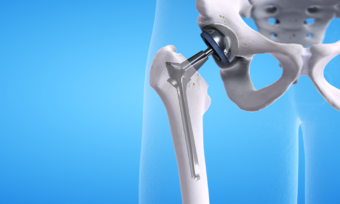
Health Insurance - December 12th
If you've got a troublesome hip, you might be considering surgery to relieve the pain and regain mobility. But, of course, private treatment comes at a cost and the public system is beset with long waiting…
– Read more
Health Insurance - December 12th
Most regular surgical and healthcare insurance policies provide only limited cover for cancer treatments and drugs. Such cover is often not enough to pay for cancer drugs that are not funded by Pharmac, which can cost…
– Read more
Health Insurance - November 18th
What is private health insurance? Private health insurance is a type of insurance coverage that individuals or families can purchase to help cover the costs of medical expenses and services that may not be fully covered…
– Read moreLife insurance is a type of insurance policy designed to provide a lump sum payment to your beneficiaries when you die or are diagnosed with a terminal illness expected to result in death within 12 months.
It’s designed to help loved ones cope financially when someone passes away. Depending on the insurer and policy you choose, this payment could be used to help your family pay off their debts and other living expenses, such as a home loan, other loan repayments and bills.
Other related life insurance products include:
Trauma Cover – provides a lump sum payment if you suffer a critical illness or injury.
Total and Permanent Disability Cover (TPD) – provides a lump sum payment if you become totally and permanently disabled so that you are no longer able to work.
Income Protection Insurance – provides a monthly payment if you are unable to work due to serious illness or injury.
If you’re not sure that you really need personal life insurance, ask yourself the following questions:
If the answer to any of the above indicates the need for extra money to be available, you might need to look at personal life insurance.
A life insurance premium is a regular amount of money you pay to your insurer in order to maintain your cover. Premiums can differ significantly between different insurers and depending on your personal circumstances. For example, factors such as your gender, age, occupation and smoking status can all play a significant role in determining how much an insurer will charge you for a direct life insurance policy.
Depending on how old you are, life insurance could be something you have for many years or even decades, so while premiums are not the only important factor to consider, it could be important to look for a policy that offers you the amount of cover you need in exchange for premiums you can afford.
Some insurers may give you the option of paying either stepped or level life insurance premiums. Stepped premiums typically increase each year as you age, whereas level premiums stay the same over time but may be more expensive initially.
It might be tempting to simply shop around for the cheapest life insurance premiums, but for a product like life insurance it’s important to also factor in other considerations, such as whether the amount of cover under a policy would be sufficient for your family’s needs should you pass away, and whether the policy has any important inclusions, exclusions or limitations you should be aware of.
If you’re shopping around for cover, you might be tempted to go with a cheap life insurance policy to keep your costs down. It’s worth bearing in mind that the policy’s level of cover can also have a big impact on the value you get overall. For example, a cheap life insurance policy might offer a lower payout amount in the event of a claim or could exclude claims based on certain risks that may be relevant to your profession or hobbies. If you’re considering a cheap life insurance policy, it’s also worth bearing in mind that aspects of your lifestyle, such as whether you smoke, can have an impact on what you pay. It may be worth reviewing policies according to those that offer a level of cover suitable for your and your family’s needs and also offers value for money.
There are two main ways to purchase Life Insurance in New Zealand:
Buying direct is essentially a way of DIYing your life insurance. It is up to you to determine what type of policy, policy conditions, and sum insured will fit your needs.
This type of insurance can be obtained either online, over the phone or directly from a provider’s branch, and is possibly the simplest way to buy life insurance.
Buying cover directly from a life insurance provider often appeals to people who know what they want and like the idea of having a straightforward life insurance policy in place to protect their family and assets, should the worst happen.
However, the onus is on the consumer to do their research to ensure they’re getting the right level of cover at a competitive price.
Depending on your situation, buying life insurance through an insurance broker may work out to be more cost-effective than buying directly from one insurer, as a broker will be able to offer you a range of products at different price points to compare.
And if you require specialised cover, a broker’s expert knowledge could help you tailor your life insurance more closely to your personal needs.
Please note that these are a general explanation of the meaning of terms used in relation to life insurance.
Policy wording may use different terms and you should read the terms and conditions of the relevant policy to understand the inclusions and exclusions of that policy. You cannot rely on these terms to the part of any life insurance policy you may purchase.
Refer to the product disclosure statement (PDS).
Duty of disclosure: When you complete an insurance application, you are required to disclose everything you know about your health, occupation, sport activities or other lifestyle risks, and income. If you fail to comply, you may come unstuck at claim time when the insurer writes to your doctor to obtain your health history.
Exclusion: The insurance company may exclude a hazardous sport or activity, which means you will not be covered if you become injured, sick, or die while doing that activity. Learn more about common exclusions.
Guaranteed future insurability: The option to increase your sum insured without having to provide health evidence or go through the underwriting process. Usually this option is available when you have certain life events defined in your policy, such as marriage, birth of a child, or increasing your mortgage.
Income protection insurance: Cover designed to replace a portion of your income if you cannot work due to a sickness or accident. Some policies also cover you if you can only work in a reduced capacity while you are recuperating.
Level premium: The premium is calculated and based on your age at the start of the policy. The premium may still increase along with inflation, or if you change to a different occupation category, but not based on your age.
Occupation category: Grouping together occupations with similar duties and risk levels.
Premium loading: An insurance company may charge higher premiums if you fall into a certain risk factor category, such as being overweight, smoking or having high blood pressure.
Stepped premium: The premium is recalculated (and will usually increase) on each policy anniversary, based on your age at that time.
Term life insurance (death cover): Term life insurance covers you if you die or are diagnosed with a terminal illness with less than 12 months to live.
TPD any occupation: You are covered if you become disabled so that you are unable to work in any occupation. For example, a surgeon could become a GP and continue to work and earn an income, meaning they would not be eligible to claim on their TPD cover.
TPD own occupation: You are insured if you become disabled so that you are unable to work in your own current occupation. For example, if a surgeon could no longer do surgery, they would be eligible to claim on their TPD cover.
Trauma cover (critical illness insurance): Cover for a lump sum payment if a defined health event happens to you, such as cancer, heart attack, or stroke. The majority of policies cover an extensive list of conditions. However it’s still important to compare options, as they do vary from policy to policy.
Waiting period: The number of days you must be off work before your income protection claim starts. Learn more about features of income protection insurance.
Underwriting: The process during which the insurance company’s underwriter (the insurer’s insurance provider) assesses your application for insurance cover. They look at your health, occupation, sport activities or other lifestyle factors and income. The underwriter may accept you as a standard cover, offer you special terms for cover, or may reject your application for cover.